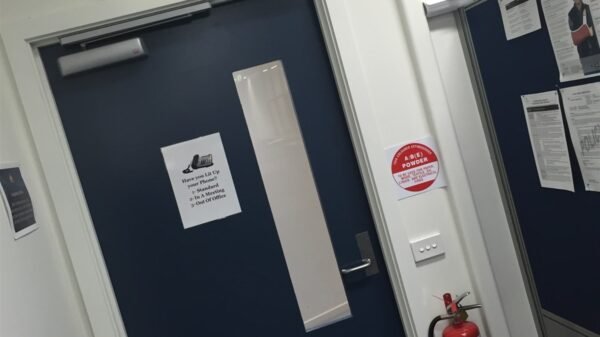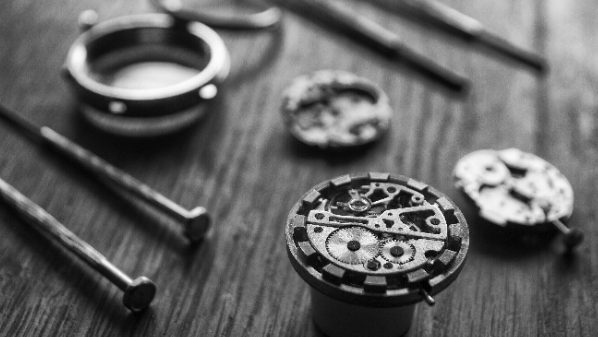Medical negligence and malpractice can prove highly traumatic when you are already fighting against underlying healthcare challenges. Mismanagement and carelessness in a minor healthcare procedure can further worsen your condition. But bafflement and confusion in such a situation can cause you more damage and lead to irreparable consequences. Hence, take immediate precautionary measures, assess your healthcare condition, observe symptoms, and seek timely assistance. If the current healthcare setting is not a safe choice any longer, ask for referrals and switch to a better facility. And once you have gained hold of your senses and healthcare complications, seek legal help for justice against the negligence consequences.
The following sections discuss immediate steps to minimize damage and seek compensation after a medical negligence incident.
1. Intimate hospital authorities
If you have experienced a medical negligence incident, do not wait for the concerned practitioners or workers to take responsibility for their actions and mend your damage. They may already be finding ways to cover up their mistakes. But your immediate actions will help hospital authorities to trace the damage and wrongdoers. If your complaints are legitimate, they will assess your condition and provide you with quick and needed medical help.
Timely intervention is crucial to examine hidden complications as negligence incidents may not lead to severe symptoms at once. But consequences surface over time, as in the case of cerebral palsy caused by medical negligence and mismanagement incidents. Cerebral palsy negligence incidents may not exhibit lethal symptoms right after the procedure, but it has several irreparable complications for a child’s well-being. It is a lifelong dependency on others for simple daily life needs. But timely intervention can increase the likelihood of managing complications before they transform into a child’s disability.
Hence, talk to the healthcare administration and connect with a credible practitioner for follow-up examinations and checkups.
2. Get a thorough medical examination
Medical malpractice incidents can be life-threatening even if you do not experience alarming signs immediately. Injuries may have caused more damage than apparent symptoms and indications. And your body may already be suffering and fighting the damage internally. Whatever the situation, complications can take some time to surface, but delays can further worsen your condition. Thus, do not overlook injuries and symptoms after a healthcare procedure.
Consult a healthcare practitioner and get a thorough examination of your body. If they advise further treatment and therapy, follow their directions and resume consultations. You can search for another healthcare expert for safety concerns. Do whatever works in your favor, but it is not the time to mourn your loss and wait for unasked assistance or justice. Brace up, maintain your composure, and help yourself before your health further deteriorates.
3. Collect medical records
Procure medical records when you switch healthcare practitioners after a malpractice or negligence incident. A medical history record contains a detailed description of your healthcare challenges and treatment approaches. It is a necessary document to help your new doctor understand your health condition without recommending further tests and lab reports.
Malpractice incidents also have a legal aspect, so a medical record is valuable when you try wrongdoers legally. If the hospital and healthcare practitioner do not acknowledge your losses, you can involve the law for justice and assistance. In such cases, a medical record is a piece of authentic evidence against the practitioner. It backs up your claims regarding medical misconduct and helps you get compensation against your losses and damage.
4. Involve a third party to verify negligence claims
Before filing a formal application against the negligence incidence, consult a credible healthcare expert to evaluate your condition and claims. Though mismanagement and negligence practices are frequent in the healthcare profession, not all cases hold credibility. Many patients believe they have experienced abuse, negligence, or malpractice, but a doctor’s side of the story can be completely different. It may appear that the doctor was negligent during a procedure, but you do not know the background of the outcome. For instance, injuries and damages do not always result from a doctor’s mismanagement and negligence during a healthcare procedure.
Errors, mishaps, and injuries are an inseparable part of a healthcare procedure. And no healthcare practitioner can eliminate them. Doctors and experts can only try their best and proceed as per standard protocols. But outcomes do not solely depend upon their efforts. Thus, anyone can become a victim of unfortunate circumstances even without a doctor’s negligence orbreach of duty. It means your case may also have the same background and reasons. Hence, verify if your injuries resulted from deliberate carelessness and mismanagement or a mere unfortunate incident.
5. Consult a legal practitioner
If you have experienced irreparable damage from the negligence incident, a lawyer can walk you through the procedure of trying the wrongdoers. They will guide you about the requirements and conditions of a medical negligence lawsuit. If your case and complaints hold grounds, they will proceed with a formal application to the court. And you can receive compensation against your losses if your case goes through a successful trial process. But make sure to consult a legal expert within two to three years of the incident.
Since malpractice and negligence cases have a specific timeline, your claims will lose credibility after the applicable timeframe. In addition, your health condition, symptoms, and injuries will also transform and lose authenticity if you observe further delays. The wrongdoing party can utilize your tardiness in their favor and temper the evidence until you initiate the legal procedure. Delays may also affect the extent and amount of legal compensation against your complaints. Hence, search for an experienced lawyer before it is too late.
Conclusion
Negligence incidents can leave an overwhelming impact on one’s life. Sometimes, it is difficult to overcome the trauma than think about the recovery steps. But do not lose your consciousness and take necessary precautionary measures at once. The follow-up steps can minimize complications and help you get justice if you are a victim of a deliberate negligence practice.





























































